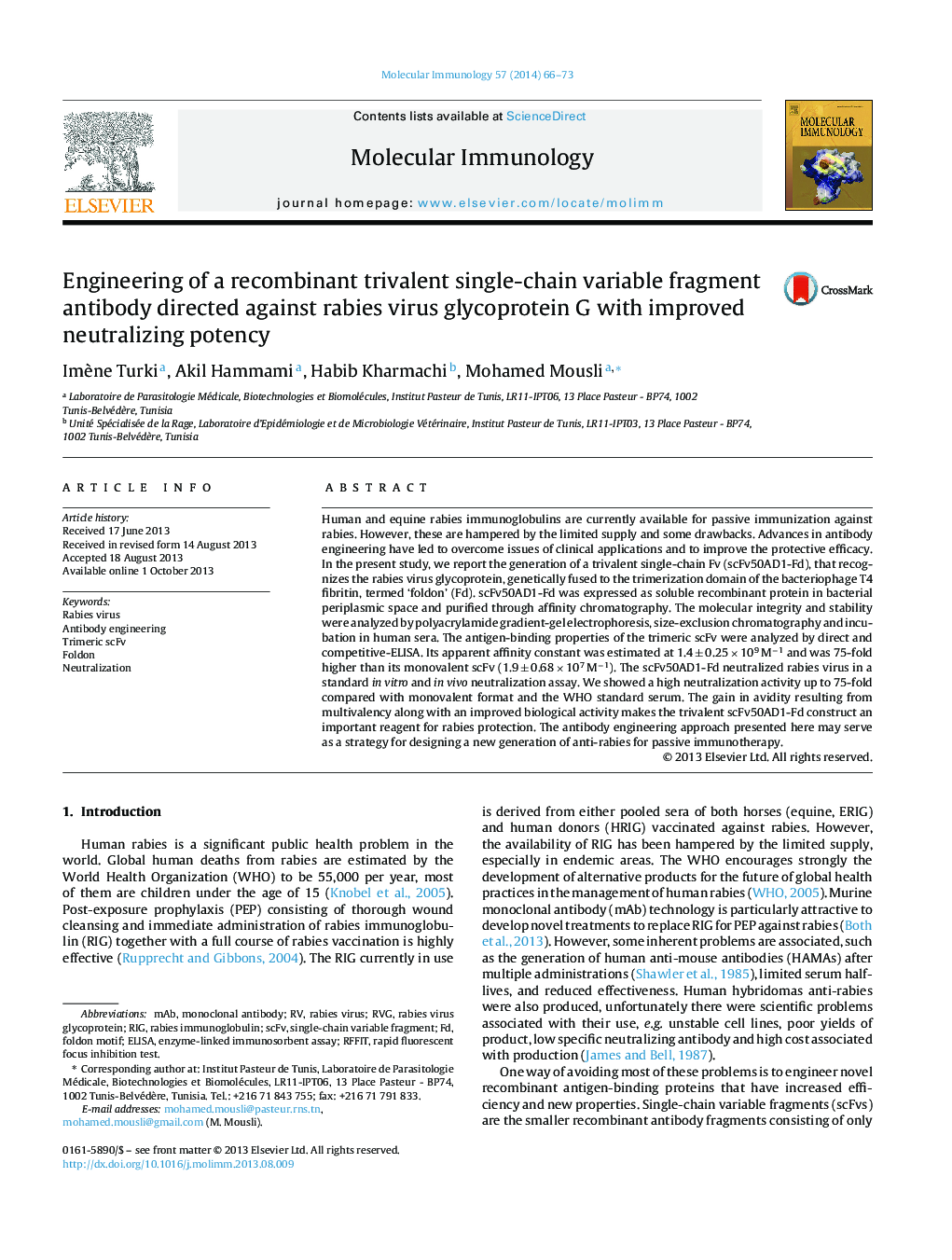| Article ID | Journal | Published Year | Pages | File Type |
|---|---|---|---|---|
| 5917018 | Molecular Immunology | 2014 | 8 Pages |
â¢Design a novel trivalent antibody format directed against rabies virus glycoprotein.â¢Improve antibody affinity, stability and neutralizing potency.â¢Obtain better biological activity against rabies virus.â¢Could lay a foundation to replace the existing utilization of rabies immunoglobulin.
Human and equine rabies immunoglobulins are currently available for passive immunization against rabies. However, these are hampered by the limited supply and some drawbacks. Advances in antibody engineering have led to overcome issues of clinical applications and to improve the protective efficacy. In the present study, we report the generation of a trivalent single-chain Fv (scFv50AD1-Fd), that recognizes the rabies virus glycoprotein, genetically fused to the trimerization domain of the bacteriophage T4 fibritin, termed 'foldon' (Fd). scFv50AD1-Fd was expressed as soluble recombinant protein in bacterial periplasmic space and purified through affinity chromatography. The molecular integrity and stability were analyzed by polyacrylamide gradient-gel electrophoresis, size-exclusion chromatography and incubation in human sera. The antigen-binding properties of the trimeric scFv were analyzed by direct and competitive-ELISA. Its apparent affinity constant was estimated at 1.4 ± 0.25 Ã 109 Mâ1 and was 75-fold higher than its monovalent scFv (1.9 ± 0.68 Ã 107 Mâ1). The scFv50AD1-Fd neutralized rabies virus in a standard in vitro and in vivo neutralization assay. We showed a high neutralization activity up to 75-fold compared with monovalent format and the WHO standard serum. The gain in avidity resulting from multivalency along with an improved biological activity makes the trivalent scFv50AD1-Fd construct an important reagent for rabies protection. The antibody engineering approach presented here may serve as a strategy for designing a new generation of anti-rabies for passive immunotherapy.
